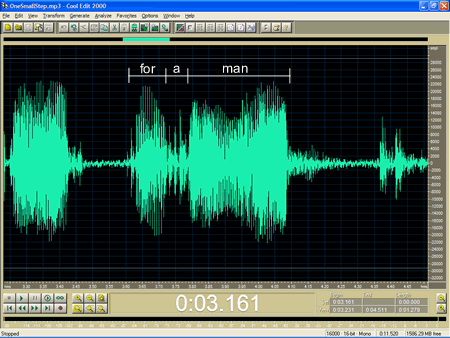I was at work in Virginia, chatting with my kid, who’s in college in Massachusetts. That in itself is wondrous. (I think I averaged two phone calls per quarter to my parents while I was in school. She talks with her mother and me four or five times a week.) She mentioned in passing that she was going to see a bunch of actors from England do Hamlet. That’s kind of wondrous, too. (It wasn’t assigned or anything—purely extracurricular.)
“I don’t know the story, though,” she said, with a tang of worry, knowing that it helps to know the plot in advance to help you through the archaic language. (She had read Macbeth, Romeo and Juliet, and maybe some other Shakespeare* in high school, but not Hamlet.) So I launched into my CliffsNotes® version of the action. When I get to the part where Hamlet arranges to have the traveling players re-enact the murder (as described to him by his father’s ghost), my kid says, “Oh, yeah, they pour poison in the king’s ear.” I say, “I thought you said you hadn’t read it.” She laughs sheepishly. Suddenly it hits me. “Let me guess: you saw it on The Simpsons.”
Because this isn’t the first time it’s happened. This past summer we were watching an episode of The Twilight Zone, the one where Billy Mumy plays a kid who is all-powerful and gets very cranky when people express, or even think, unhappy thoughts, and my apparently clairvoyant daughter says, “He’ll send them to the corn field.” And sure enough, he does (where they die, of course). And sure enough, she got that bit of prescience from The Simpsons.
It turns out I’m not the only one who’s experienced this odd reverse allusionizing in the younger generation. In a recent issue of The London Review of Books, Joanna Biggs opens a review with this anecdote:
I watched The Godfather for the first time with my little brother. I’d been worried he was too young for it, but that was before we got to the notorious scene in which the camera starts out hovering over Jack Woltz’s pool, climbs into his bedroom, then crawls up his sleeping body, finally pausing at a smear of blood at the top edge of his blanket. At this point, my brother announced that there would be a horse’s head under the blanket. I found it hard to believe that a ten-year-old who’d never seen the film knew what would happen next. I turned back to the screen. Woltz wakes up and, noticing the smear, starts drawing back the blanket to reveal a pool of blood. He pulls the blanket back further, and discovers a horse’s head at the foot of the bed, its glossy brown nose facing us, glassy eye to the ceiling. I turned back to my brother and asked him how he’d known. “The same thing happened in The Simpsons,” he said.
It’s a strange thing to recognize something backwards. When you see that episode of The Simpsons, you’re supposed to chuckle wryly in recognition. But what if, like my brother, you’re seeing it for the first time? When you see the imitation without knowing the original, how odd it must seem. And when you finally see the original knowing the imitation, what’s supposed to be a shock is now familiar, almost expected. The advantage is that you can be one line ahead of everyone else.
I don’t know if it’s necessarily an advantage, but it’s definitely weird. And I single out The Simpsons because I don’t know if there’s another example of pop culture that makes such extensive use of “artsy” allusions (in addition to the plethora of political and popcult references). When kids nowadays read The Oddysey in high school, they think, “Ah, Homer!” And I’d bet good money (it has to be a bet, since I’ve seen maybe 10% of the Simpsons oeuvre**) they’ll encounter scenes that are quite familiar, albeit painted in bright cartoon colors rather than the stark sun-drenched monochrome of the other Homer.
__________
*Sorry—I meant de Vere.
**And enjoyed it immensely. So why do I watch the show (reruns) only when the kid is around? Hm.


